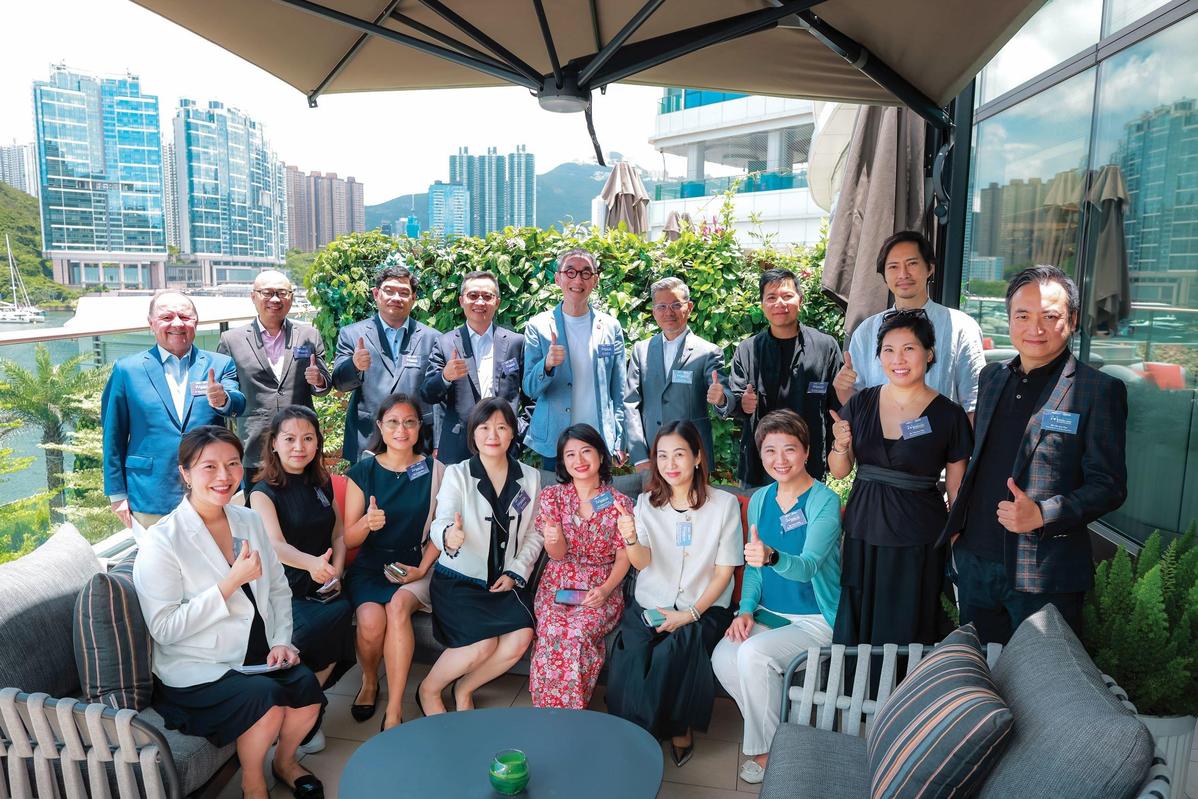Amid the whirlwind of global traveling following the long months when everyone was compelled to stay at home due to the COVID-19 pandemic, the hospitality and tourism industry is celebrating a handsome economic rebound.
But the jubilant clamor still can’t drown out the buzz of concern among Hong Kong industry leaders over “sustainability” – both economically and environmentally.
Some of the industry’s foremost practitioners laid out their insights, desires and proposals at a special seminar on Wednesday, eventually agreeing that while Hong Kong has come a long way on sustainable tourism, there is still an immense area to be explored hand-in-hand with top-down guidance.
Sustainability is often touted as a panacea for the industry’s woes, but the balancing act of developing tourism and conserving local cultural heritage as well as the environment is fraught with difficulty.
The exclusive Mastermind Roundtable brought together leading business executives, government officials, and academics from the Guangdong-Hong Kong-Macao Greater Bay Area to discuss regional developments and trends.
Giovanni Angelini, founder of Angelini Hospitality and former chief executive officer of Shangri-La Hotels and Resorts said that it is wrong to see sustainable practices (in hospitality) as a cost.
Casting one’s visions farther, one will reap medium-to-long-term revenues from sustainability.
Incentives are essential to grease the wheels of decarbonization and sustainable economy, which Angelini believes should come in the form of a carbon tax.
Finland was the first country in the world to introduce a CO2 tax in 1990 and is now one of the cleanest countries in the world.
A properly measured carbon tax would get the attention of all, top executives in particular.
To get the ball of sustainable tourism and hospitality rolling, the industry has to start with scrutinizing the basics, running the gamut from energy, water, wastage and recycling to indoor air, building insulations, quality of boilers, air-conditioning, and so on, Angelini stressed.
Omnipresent potential
As part and parcel of sustainable tourism, cultural heritage revival may not be such a tall order.
Resources are readily available: the mottled buildings are out there, the wear and tear on those weathered structures is a tell-tale narrative of their backstory and local rituals may well be held dear by senior citizens who have stayed put.
Much the same is happening in Sai Kung, where the Kau Sai Village Committee office was converted into a Kau Sai Village Story Room which displays traditional fishing tools and common local medicinal herbs, said Chan.
Such lesser-known villages and parks might have fallen into obscurity without proactive revival in Hong Kong, said George Hang, a public park pioneer who runs George Hang Design.
The potential of these treasure troves is immense, he said.
Sustainable tourism is far more than reviving and preserving heritage buildings for sightseeing purposes, argued Douglas. So, chairman of Antiquities Advisory Board.
How sustainable tourism goes down with the public profoundly depends on “the software” value afforded to tourists.
Hong Kong urban designers sometimes find themselves up against a brick wall, not because they are at their wits’ end creatively, but because their creative pitch is decided to be economically unviable by the authorities, said Horace Pan, chairman of Hong Kong Interior Design Association, who recounted an unsuccessful proposal of a Star Ferry tour.
From January to May 2023, visitor arrivals exceeded 10 million in Hong Kong, accounting for about 40 percent of pre-pandemic levels, according to research by Wong.
To accelerate post-COVID economic recovery and to meet the full-year target of 26 million visitors, continuous input of international visitor arrivals is required to sustain the tourism economy synergy in the long run, he said.
However, the effect could err into detrimental “overtourism”, where the city’s “social carrying capacity” might burst at the seams, warned Wong.
In other words, an excessive influx of tourists could overwhelm the city’s capacity for accommodating the population and therefore undermine or even sabotage residents’ quality of life.
Obviously, there is no shortcut to sustainability. It really takes flexibility, agility, resilience, and determination. It’s an odyssey for sure, and an elusive one, but experts believe, it is by no means a dead end.
Tags: COVID-19 pandemic, global traveling, Hong Kong, George Hang, hospitality, sustainable tourism, Giovanni Angelini, Angelini Hospitality, Tourism industry, Hong Kong Interior Design Association

